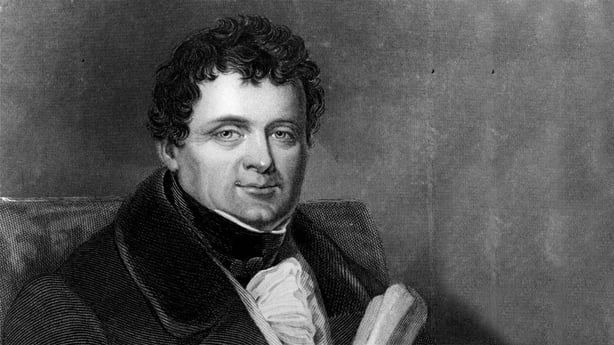Theatre-maker and activist Donal O'Kelly is currently Writer-in-Residence for Maynooth University's Arts and Minds Festival, which runs from May 9th - 11th, 2024 - ahead of his appearance at this year's event, he explores the subject of his forthcoming book - the greater historical context of Ireland's Direct Provision system.
Back in October, I was fortunate enough to be asked by MU Department of English and Kildare County Council Arts and Library Service to be Maynooth University Arts and Minds Festival Writer-in-Residence. Never having gone to college, it's been a revelation to me – to get familiar with the various faculties and schools, to attend urgently-assembled events on campus, and to have the use of the fabulous library and access to the special collections kept in Maynooth University.
The residency has allowed me to research the book of creative non-fiction I’m writing exploring the origins of the concept of Direct Provision, the system of accommodation for international protection applicants introduced in Ireland a quarter of a century ago. Where on earth did that come from? What historical influences led to the moment, for example, when a senior civil servant decided, on 10th December 1999, World Human Rights Day, that €19.10 (£15 in punts) would be the 'comfort payment’ per week for people living in Direct Provision? Banned from working, that decision placed people under a forced exclusion from society through enforced poverty that lasted unchanged until 2018.
I have been drowning in a sea of books (everyone, if you haven’t yet, read Sally Hayden’s book My Fourth Time, We Drowned to understand the pressure under which many people arrive in Ireland from situations of extreme danger and need). I’ve paddled back through Ireland’s history of institutional care; Direct Provision was introduced to cabinet in May 1999, at precisely the time then-Taoiseach Bertie Ahern issued the state apology to past residents of industrial schools and reformatories for systemic child abuse suffered by them. The irony of imposing another profit-making system of coercive confinement on people caught in situations of vulnerability did not seem to occur to the Irish policy-making elite of the time. If it did, any caveats were overcome by the urgency to protect the Common Travel Area and keep in step with UK policy on refugee reception. Sound familiar?
There was a rise in international protection applications between 1997-2002, like the one currently stirring many people, the difference being the increased anti-immigrant and racist influence foreign organisations can have on public opinion through social media, as shown by the Newtownmountkennedy protests last week, where an estimated 80% of social media commentary came from abroad, mostly the US.
Further out, the choppy waters of the Atlantic slave trade imposed its historical legacy on the human species for four hundred years largely ignored by the keepers of the historical canon, including the Black Codes of the Caribbean and Southern United States, and Ireland absorbed through our emigrants forced abroad as refugees and economic migrants the white supremacist orthodoxy carefully concocted to protect capital and power gained through slavery, as Daniel O’Connell found to his cost.

An opponent of slavery, his Repeal movement funding from Irish emigrants in America dried up drastically in the 1840s under the influence of the US slaveholders’ vicious fight to maintain the system. Newly-arrived Irish labourers comprised one-eighth of the population of Charleston, South Carolina, a slave state.
In the early 2000s, the school O’Connell founded in Dublin had one-third immigrant pupils attending, many of them unaccompanied minors living in institutional care. Their arrival here was pushed by factors that included the legacy of the Atlantic slave industry and white European imperialist expansion and settler-colonialism, always cloaked as a gift.
I’m looking forward to presenting extracts from the book, Nilly and Nullius, at 4.30 pm on Saturday, May 11th in the John Hume Building on the Maynooth University campus.
Maynooth University's Arts and Minds Festival runs from May 9th - 11th, 2024 - find out more here.
Disclaimer: The copyright of this article belongs to the original author. Reposting this article is solely for the purpose of information dissemination and does not constitute any investment advice. If there is any infringement, please contact us immediately. We will make corrections or deletions as necessary. Thank you.






